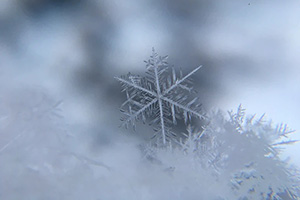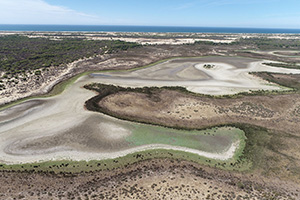The Global Institute for Water Security at the University of Saskatchewan is the #1 water resources research institute in Canada and one of the most advanced hydrology research centres in the world. GIWS is dedicated to:

Protecting water resources
Helping protect our precious freshwater resources needed for the world’s growing demand for sustainable food production

Mitigating water-related disasters
Mitigating the risk of water-related disasters such as floods, droughts, and fires

Anticipating global change
Predicting and forecasting extremes of global change through the use of advanced remote sensing and modelling techniques

Co-creating research with Indigenous Peoples
Co-creating research and braiding Traditional Knowledge with modern science to empower Indigenous communities in protecting healthy waters, people, and ecosystems
Join Us
- Become a Member
- Research and Job Opportunities
- Attend an event - seminars, lectures and more
Featured

Women Plus Water
The Global Institute for Water Security supports Women Plus Water - an international community which increases the visibility of women in water and engages people through an annual lecture series, an expert list, and mentorship opportunities to learn about the gendered impacts of water research, management, and decision-making.
Learn More
GIWS Students & Young Researchers
The GIWS Students and Young Researchers is a student-led organization to cultivate an inclusive and unified water community of young professionals at the University of Saskatchewan to share experiences, offer professional development opportunities, and socially network.
Interested in joining? Head to the GIWS SYR webpage for more information on how to get involved!

Global Water Futures
The Global Institute for Water Security helps lead the Global Water Futures program and the GWF Observatories network.
Learn MoreNews
Loading...
The Conversation Canada
 Curated by professionals, the Conversation Canada is an independent source of news and views delivered directly to the public. The articles below are authored by faculty and students, involved in the Global Water Futures community.
Curated by professionals, the Conversation Canada is an independent source of news and views delivered directly to the public. The articles below are authored by faculty and students, involved in the Global Water Futures community.
How do snowflakes form? Is each snowflake really unique? Why is some snow light and fluffy or heavy? The amazing science of snow

Krystopher Chutko - University of Saskatchewan
Many a writer has mused about snowflakes as a natural work of art. Here’s a scientific look at the amazing nature of snowflakes and snow.
Ripple effect: As global freshwater basins dry up, the threat to ecosystems and communities grows

Xander Huggins - University of Victoria
When people use freshwater beyond a physically sustainable rate, it sets off a cascade of impacts on ecosystems, people and the planet. These impacts include groundwater wells running dry, fish populations becoming stranded before they are able to spawn and protected wetland ecosystems turning into dry landscapes.
Subscribe to our eNewsletter
Subscribe to our eNewsletter and keep up on the latest insights, breakthroughs, and updates from the Global Institute for Water Security.
Help secure a sustainable water future
Your support empowers the Global Institute for Water Security to lead groundbreaking research and initiatives.


